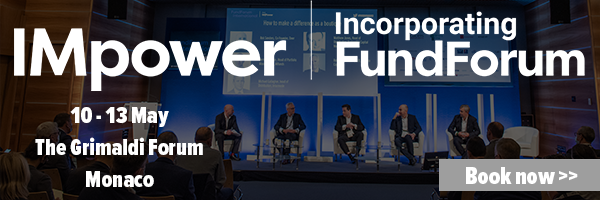The unburdened system: Throwing off the old to make way for the new

It’s no secret that the fund management industry is burdened by legacy technology, much of it more than 30 years old, that simply can’t do what is needed today. Data volumes have grown beyond our wildest expectations, regulatory changes have been far-reaching and hugely impactful, new asset classes have come (and are coming) to market and client expectations have evolved. Legacy systems are not fit for purpose, but change is slow and, too often, not nearly innovative or far-reaching enough.
That digitalisation, and accompanying wholesale transformation, is inherently necessary is largely undisputed. But our industry is struggling with understanding what this really looks like, and what’s needed to achieve this. This is complicated by the industry’s staggered acceptance of cloud technologies and the application of AI and Machine Learning. As a result, I have yet to meet a single client or industry insider who is genuinely satisfied, never mind happy, with their current digitalisation strategy.
Digitalisation removes barriers
While some industry players have invested heavily in front office technology in an attempt to digitise it, this misses the real truth about digitalisation – it must encompass an entire organisation to allow your data, and the processes and decisions that come from that, to flow and move seamlessly in multiple directions and ways. True digitalisation removes barriers, it doesn’t add new ones. A front office with sophisticated digitalisation solutions but old-fashioned manual processes in the middle and back office is just smoke and mirrors – it might look good to the customer, but it doesn’t really add any genuine value.
Instead, we should be focusing on how digitalisation can drive fundamental change – helping to generate increased alpha, reduce risk and enhance customer experience. We can only do this by creating an entirely new ecosystem, one in which workflow processes, data and decision-making are improved as a result of integrated digital strategies. We have to start from scratch and build systems that are data-native, cloud-native and future proofed.
The future is now
The good news is that we can. The technology exists today in a way that it didn’t even 10 years ago.
The trick is not to think like we always have, but rather to centre technology and data, and reconsider everything we thought we knew. It is time to redesign and build from the ground up to create scale and operational optimisation in support of current and future needs of the industry.
Imagine a single operating model that stretches across multiple dimensions - asset classes, regions, front/middle/back office to enable unparalleled scale and efficiency and significantly reduced costs of ownership. The capabilities of a cloud-native accounting system may still be relatively new, but the concept is already changing the way our clients think, and the long term value can only grow exponentially.
Benefits we can all see
This ground-up transformation and digitalisation process will deliver a multitude of benefits including:
- Shift away from your at-risk legacy models to create unparalleled scalability and operational optimisation, enabling agile and resilient processes and systems that can seamlessly respond to ongoing industry transformation.
- Reduce risk across front-to-back asset management services with a “single source of truth” that enables sophisticated, cross-segment operations automation and data insights, while delivering a truly differentiated customer experience.
- Collaborate to move the industry forward instead of continuing to tackle new challenges alone.
At FundGuard, we believe that the industry is stuck in a cul-de-sac, with very little room to turn. We believe the answer is to disrupt the entire system and create a global utility that will drive a new era of investment management operations for asset managers, asset owners, custodian banks and fund administrators.
FundGuard are silver sponsors of IMpower Incorporating FundForum 2022. Find out more about the 2022 event and agenda here >>
